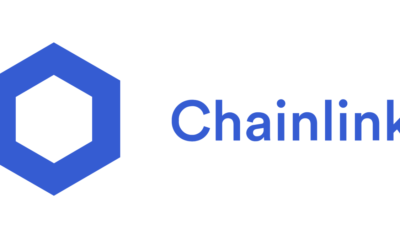Bitcoin
What is Holding Back Blockchain’s Mainstream Adoption

Blockchain technology, the backbone of digital currencies like Bitcoin, has the potential to revolutionize various industries and create new business models. However, despite its potential, blockchain technology is still in the early stages of development and has not yet been widely adopted in most industries. There are several factors that are holding back mainstream adoption of blockchain technology. In this article, we will discuss the top 10 reasons that are holding back blockchain’s mainstream adoption.
Contents
- 1 1- The Lack of Knowledge
- 2 2- Complexity and Lack of User-Friendliness
- 3 3- Limited Scalability
- 4 4- The Lack of Regulatory Clarity
- 5 5- Security Concerns
- 6 6- Limited Use Cases and Real-World Applications
- 7 7- The Lack of Interoperability Between Different Blockchain Platforms
- 8 8- High Volatility
- 9 9- Limited Access to Funding
- 10 10- Competition From Traditional Systems
- 11 Conclusion
1- The Lack of Knowledge
One of the main factors holding back mainstream adoption of blockchain technology is the lack of understanding and knowledge about it among the general population. Many people are not familiar with the concept of blockchain and how it works, and may not fully grasp the potential benefits and implications of this technology.
This lack of understanding is further exacerbated by the complex and technical nature of blockchain, which can be difficult for non-experts to comprehend. Additionally, many blockchain-related terms and concepts, such as cryptography and consensus mechanisms, can be difficult to understand without a background in computer science or other related fields.
Moreover, misinformation and misconceptions about blockchain technology have also contributed to a lack of understanding among the general population. For example, many people may associate blockchain solely with cryptocurrency, and not realize its potential for other applications such as supply chain management, voting systems, and digital identity.
2- Complexity and Lack of User-Friendliness
The current blockchain platforms available, such as Bitcoin and Ethereum, are often complex and difficult to navigate for non-technical users. They require a certain level of technical knowledge and expertise to set up and use, which can be a barrier for many individuals and businesses.
Additionally, the process of creating and managing a blockchain wallet, sending and receiving transactions, and interacting with smart contracts can be confusing and overwhelming for those without prior experience. This complexity can be a deterrent for many people who may otherwise be interested in using blockchain technology.
Furthermore, the lack of user-friendly interfaces and easy-to-use wallets and dApps is a major challenge for blockchain platforms. The current user interface for some blockchain platforms is not intuitive and can be difficult to understand for non-technical users.
3- Limited Scalability
One of the main limitations of current blockchain platforms is their limited scalability. The current infrastructure of many blockchain networks can only handle a small number of transactions per second, which can cause delays and slow down the overall process. This is a significant problem for blockchain platforms that are being used for real-world applications, such as online payments and e-commerce, where fast and efficient transactions are critical.
Additionally, the high fees associated with transactions on some blockchain networks can also be a deterrent for users. These high fees are often a result of the limited scalability of the network, as more users and transactions put a strain on the system.
This scalability issue is also due to the design of some blockchain platforms that use a Proof-of-Work (PoW) consensus mechanism, which requires a large amount of computational power and energy to validate transactions, this makes it not only slow but also environmentally costly.
4- The Lack of Regulatory Clarity
Blockchain technology and digital assets are relatively new and rapidly evolving, and governments and regulators have yet to establish clear guidelines and regulations for these industries. This lack of regulatory clarity can create uncertainty and risk for businesses and individuals looking to invest in or use blockchain technology.
For example, the legal status of digital assets such as cryptocurrencies is often unclear, and can vary from country to country. This can make it difficult for businesses to operate and for individuals to understand their rights and obligations.
Furthermore, the decentralized and global nature of blockchain technology can make it difficult for governments and regulators to effectively monitor and enforce compliance with existing laws and regulations.
The lack of regulatory clarity and legal framework can also make it difficult for businesses to raise funds through initial coin offerings (ICOs) and security token offerings (STOs) since there’s no clear regulatory framework for them.
5- Security Concerns
Blockchain technology is built on the principle of decentralization and security, however, the security of the blockchain is not unbreakable and still can be vulnerable to hacking and fraud. For example, a hacker can gain access to a user’s private key and steal their digital assets. Additionally, smart contracts, which are self-executing contracts with the terms of the agreement directly written into lines of code, can have vulnerabilities that can be exploited by hackers.
Another security concern is the potential for 51% attack, this is when a group of miners or validators control more than half of the computing power of a blockchain network, enabling them to manipulate the network and double-spend coins or halt the network.
Moreover, the anonymity and pseudonymous nature of blockchain transactions can make it difficult to trace and prevent fraudulent activities such as money laundering, tax evasion, and other illicit activities.
These security concerns can create uncertainty and mistrust among potential users and investors, deterring them from using or investing in blockchain technology.
6- Limited Use Cases and Real-World Applications
While blockchain technology has the potential to revolutionize various industries and create new business models, it is still in the early stages of development and has not yet been widely adopted in most industries. Many of the current use cases for blockchain technology are still in the experimental or pilot phase, and have not yet been proven to be viable on a large scale.
Additionally, many of the existing use cases for blockchain technology are focused on financial applications such as payments and remittances, but it has not yet been widely adopted in other industries such as supply chain management, healthcare, voting systems, and digital identity.
Furthermore, many businesses and individuals are still not aware of the potential benefits of blockchain technology and its possible use cases. They may not know how blockchain technology can be used to improve their own businesses or personal lives.
7- The Lack of Interoperability Between Different Blockchain Platforms
Currently, there are many different blockchain platforms and networks that have been developed, each with their own unique features, capabilities, and limitations. However, these different platforms and networks are not always compatible with one another, making it difficult for businesses and individuals to use multiple blockchain systems in a seamless and integrated way.
This lack of interoperability is a major issue for businesses that operate across multiple blockchain networks, as it requires them to maintain separate and incompatible systems for each network. Additionally, lack of interoperability also limits the potential for the development of decentralized applications that can operate across multiple blockchain networks.
8- High Volatility
One of the main reasons for this volatility is the speculative nature of the cryptocurrency market, where prices are driven by speculation and market sentiment rather than by the underlying fundamentals of the assets. Additionally, the lack of regulation and oversight in the cryptocurrency market can also contribute to volatility and instability.
9- Limited Access to Funding
Limited access to funding and investment opportunities for blockchain-based projects is another factor holding back mainstream adoption of blockchain technology.
Blockchain-based projects and startups often face challenges when it comes to raising funds and finding investment opportunities. Many traditional investors and venture capital firms are still hesitant to invest in blockchain-based projects due to the lack of understanding and lack of regulatory clarity. Additionally, the high volatility and instability of cryptocurrency prices can make it difficult for blockchain-based projects to secure funding from traditional investors.
Furthermore, many blockchain-based projects rely on initial coin offerings (ICOs) and security token offerings (STOs) as a means of fundraising, however, the lack of regulations and legal framework for these fundraising methods can make it difficult for projects to secure funding and for investors to understand the risks and potential returns.
10- Competition From Traditional Systems
Blockchain technology is still a relatively new and untested technology, and many businesses and individuals may be hesitant to adopt it due to the perception that it is untested or unproven. Additionally, many traditional systems and technologies, such as centralized databases and payment systems, have been in use for many years and have been proven to be reliable and effective.
Furthermore, traditional systems and technologies have the advantage of being well-established and have a proven track record, and therefore, many businesses and individuals may be hesitant to switch to a new and untested technology. They may also have existing systems and infrastructure that are not easily compatible with blockchain technology.
Additionally, traditional systems and technologies have the support of established companies and institutions, which can make it difficult for blockchain-based projects to compete in terms of resources and support.
To address this issue, blockchain-based projects and startups need to demonstrate the clear benefits and advantages of blockchain technology over traditional systems and technologies. This includes highlighting the advantages of decentralization, transparency, and security that blockchain technology offers. Additionally, blockchain-based projects need to work on creating more seamless and easy-to-use solutions that can be adopted by businesses and individuals with minimal disruption to their existing systems and infrastructure.
Conclusion
In conclusion, competition from traditional systems and technologies is a significant challenge that needs to be addressed in order to promote mainstream adoption of blockchain technology. By highlighting the benefits and advantages of blockchain technology and creating more user-friendly solutions, it will be easier for businesses and individuals to adopt and use blockchain technology.
Bitcoin
Telecom Giant Vodafone Bringing Crypto to the Masses Via SIM Cards

The major telecom company Vodafone has unveiled an ambitious plan to integrate cryptocurrency wallets directly into the SIM cards used by mobile phones on its network. This cutting-edge move aims to make blockchain technology and crypto easily accessible to millions of smartphone users worldwide.
What’s Happening?
Vodafone, one of the largest mobile operators based in the UK, intends to combine crypto wallets with the subscriber identity module (SIM) cards inside phones. SIM cards are little chips that allow mobile devices to connect to a carrier’s network.
By embedding a crypto wallet into these ubiquitous SIM cards, Vodafone wants to introduce blockchain and virtual currency technology to the masses through the smartphones we all use daily.
The Bigger Blockchain Picture
This crypto SIM integration is part of Vodafone’s bigger blockchain strategy. The company has developed its own “PairPoint Digital Asset Broker” platform to enable secure digital identities and transactions across different blockchains.
Vodafone’s blockchain lead David Palmer emphasized in an interview that mobile phones are the main way billions access digital services and commerce. So partnering blockchain with SIM card tech is crucial for widespread adoption.
By 2023, there will be over 8 billion mobile phones in use globally. And estimates suggest crypto wallets on smartphones could reach 5.6 billion by 2030 as digital money goes mainstream.
Financial Restructuring
The crypto wallet announcement comes as Vodafone seeks to restructure its finances and raise billions in new funds through debt offerings and loans over the next couple years.
The company plans to take on $2.9 billion in total debt, including $1.8 billion in direct loans. Some of this financial overhaul relates to issues at Vodafone’s Indian subsidiary Vodafone Idea Ltd.
While navigating these monetary hurdles, Vodafone still sees major opportunities in emerging technologies like blockchain and aims to be an innovator helping drive mainstream crypto adoption through the SIM card strategy.
Bitcoin
No Evidence of Hack, Says Bitfinex CTO Amid Ransomware Gang’s Allegations

In the world of cybersecurity, claims of data breaches can cause significant concern and speculation. Recently, a ransomware group named FSOCIETY claimed to have successfully hacked several organizations, including the cryptocurrency exchange Bitfinex. However, Bitfinex’s Chief Technology Officer (CTO), Paolo Ardoino, has dismissed these rumors, stating that a thorough analysis of their systems revealed no evidence of a breach.
According to Ardoino, who is also the CEO of Tether, less than 25% of the email addresses allegedly stolen from Bitfinex’s servers match legitimate users. This casts doubt on the validity of FSOCIETY’s claims regarding the supposed hack.
The ransomware group, styled after the fictional hacking group from the TV show “Mr. Robot,” claimed to have breached several victims, including Rutgers University, consulting firm SBC Global, and a cryptocurrency exchange they referred to as “Coinmoma,” which is likely a misspelling of Coinmama.
Ardoino expressed skepticism about the group’s claims, stating that if they had indeed hacked Bitfinex, they would have demanded a ransom through the exchange’s bug bounty program, customer support channels, emails, or social media accounts. However, Bitfinex received no such requests from FSOCIETY.
Furthermore, Ardoino shared a message from a security researcher suggesting that the real motivation behind the alleged hacks might be to promote FSOCIETY’s ransomware tools, which they reportedly sell access to in exchange for a subscription fee and a commission on stolen profits. Ardoino questioned the group’s need to sell their tools for $299 if they had truly hacked a major exchange like Bitfinex.
It’s worth noting that Bitfinex has previously fallen victim to a significant hack in 2016, resulting in the theft of a substantial amount of Bitcoin. Two individuals, including crypto rapper ‘Razzlekhan,’ pleaded guilty to money laundering charges in connection with that incident.

While the claims made by FSOCIETY have yet to be verified by the alleged victims, Bitfinex’s CTO remains firm in his stance that no breach has occurred. As cybersecurity threats continue to evolve, it is crucial for organizations to remain vigilant and take proactive measures to protect their systems and users’ data.
Bitcoin
Indian Police Seize 268 Bitcoins Worth $17 Million in Crypto Bust

Indian authorities have seized a large sum of bitcoins from a resident of Haldwani, a city in the northern Indian state of Uttarakhand. The seized cryptocurrency stash of 268 bitcoins is worth around $17 million at current prices.
The Enforcement Directorate (ED), a law enforcement agency that investigates financial crimes, carried out the bitcoin seizure. They arrested Parvinder Singh from his home in Haldwani after a raid prompted by information from US authorities.
Singh is allegedly part of an international drug trafficking syndicate called “The Singh Organization.” The criminal group used dark web marketplaces like Silk Road to sell drugs in the US, UK and other European countries.
To hide their illegal activities, the syndicate laundered the drùg money by converting it into bitcoins and other cryptocurrencies. ED officials said Singh and his associates received around 8,488 bitcoins over the years from their drùg sales on the dark web.
The bitcoin seizure was a rare collaboration between Indian and US law enforcement agencies. American officials have been investigating Singh and his accomplice Banmeet Singh for their roles in the international drùg cartel.
Cryptocurrencies like bitcoin are popular among criminals due to the anonymity they provide. However, this case shows authorities are getting better at tracing illegal crypto transactions and bringing the perpetrators to justice.
The investigation is still ongoing, and more arrests and seizures are expected as officials unravel the entire money laundering operation of The Singh Organization.
-

 Altcoins4 years ago
Altcoins4 years agoProject Review: Pi Network, a New Scam Project in Town
-

 Bitcoin4 years ago
Bitcoin4 years agoBitcoin Worth $1.2M Seized From Arrested Indian Hacker
-

 Altcoins5 years ago
Altcoins5 years agoReview: Play Arcade Games Inside ARK Wallet And Win Some Free Cryptocurrency
-

 Blockchain5 years ago
Blockchain5 years agoA Full Review: Utopia A New Decentralized P2P Blockchain
-

 Bitcoin5 years ago
Bitcoin5 years agoAnother Exit Scam: NovaChain Shuts Down
-

 Exchanges5 years ago
Exchanges5 years agoCrex24 Will Require KYC Verification
-

 Bitcoin5 years ago
Bitcoin5 years agoJohn McAfee Has Gone Missing
-

 Altcoins5 years ago
Altcoins5 years agoElrond Partners With ChainLink


















